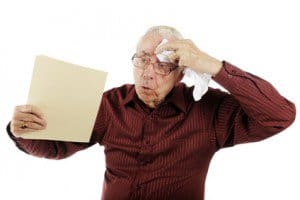
Be sure you stay hydrated and don’t overexert yourself in the summer heat
In June 2011, researchers at Stanford University confirmed that our summers are indeed getting hotter, due to increased emissions of greenhouse gases worldwide. They concluded that if this situation continues, the majority of the world will experience an irreversible rise in summer temperatures, perhaps as soon as within the next 20 years. While this is obviously a great concern for a number of reasons, it’s something to heed especially if you are a senior citizen or a person caring for an elderly relative. Unfortunately, the natural aging process gradually takes away some of our body’s ability to regulate temperature. This means that seniors literally do not feel heat in the same way, putting them at high risk for becoming overheated.
When someone is overheated, it can quickly lead to heat exhaustion. Signs of heat exhaustion include profuse sweating, moderate increase in body temperature, rapid heartbeat, fatigue, thirst, low blood pressure, headache, blurred vision, nausea/upset stomach, and an ashen appearance. If you notice someone experiencing these symptoms, it is critical to take steps to cool them down as quickly as possible.
- Move the individual to a cool, dry place where they can lay down.
- Remove any excess clothing and loosen what remains.
- Wrap some ice in a towel and apply it to the head, neck, armpits, and groin.
- Place a fan on the person and apply cool water to their skin.
- Have the person drink water that is cooler than room temperature, but not iced.
- Offer them electrolyte drinks as well, like Gatorade.
When heat exhaustion goes undetected, it can rapidly turn into heat stroke, which is a life-threatening condition. Heat exhaustion advances to heat stroke when the body loses the ability to cool itself. At this point, the person will typically become disoriented, and may lose consciousness, or have a seizure. If this occurs, you should call 911 immediately.
Do not let yourself or someone you love fall victim to these preventable ailments. When it is warm outside, you should be sure to drink plenty of fluids to stay hydrated. (However, avoid alcoholic or caffeinated beverages, as they actually have a dehydrating effect.) You should also avoid direct exposure to the sun, especially between 10 a.m. and 3 p.m., which are generally the warmest hours of the day. Additionally, you should limit your outdoor exercise to early in the morning or later in the evening when it is cooler. Finally, when you are spending time outdoors and don’t have access to air conditioning nearby, bring a portable fan with you to aid in cooling if you become overheated. Don’t forget your water!


